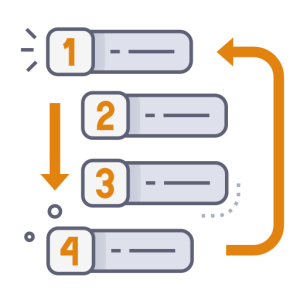SEO Indexing Explained: How to Get Your Site Indexed and Boost Rankings What is Indexing in SEO and How to Get Your Site Indexed
navathad
July 11, 2024
Indexing in SEO refers to the process where search engines like Google or Bing crawl and store web pages in their database (index). Once a page is indexed, it becomes eligible to appear in search engine results when relevant queries are made by users. Indexing is a crucial step in ensuring that your website’s content can be found and displayed in search engine results pages (SERPs)
The Best Strategy To Growth Your Business

Indexing in SEO is a foundational aspect of how search engines operate. It involves search engine crawlers systematically visiting and analyzing web pages, following links from one page to another, and collecting information about each page’s content, structure, and metadata. This collected data is then stored in the search engine’s index, which acts like a massive library catalog. When a user enters a search query, the search engine quickly retrieves relevant pages from its index and ranks them based on various factors like relevance, quality of content, and authority.
The Modern Rules of SEO
The modern rules of SEO emphasize a user-centric approach and high-quality content. Understanding and aligning with user intent is crucial; content must address the specific questions and needs of your audience, considering various search intents like informational, navigational, transactional, and commercial investigation. Providing valuable, relevant, and comprehensive content that genuinely addresses user needs is key. This user-focused approach helps in creating content that not only attracts visitors but also engages and retains them. pellentesque eu, pretium quis, sem.
Add Your Heading Text Here


In addition to user intent, maintaining high-quality content through the principles of Expertise, Authoritativeness, and Trustworthiness (E-A-T) is essential. Google’s algorithms favor content from authoritative and trustworthy sources, so demonstrating expertise and building authority in your niche is crucial. Regularly updating content to keep it fresh and accurate is also important. Diversifying content formats, such as using articles, videos, infographics, and podcasts, can enhance user engagement and improve SEO performance. These strategies ensure that your content remains relevant and competitive in the ever-evolving landscape of search engine optimization.
Conclusion
In conclusion, mastering SEO requires a focus on user intent, high-quality content, and the principles of Expertise, Authoritativeness, and Trustworthiness (E-A-T). Regularly updating content and using diverse formats enhance engagement and relevance. Staying updated on SEO trends and best practices is essential for maintaining and improving search rankings. By following these modern SEO rules, you can boost your website’s visibility, attract targeted traffic, and achieve your business goals.